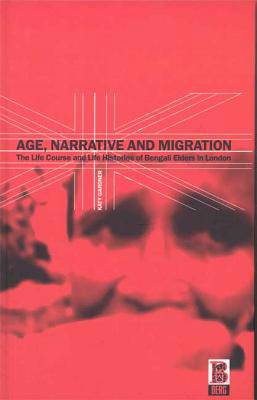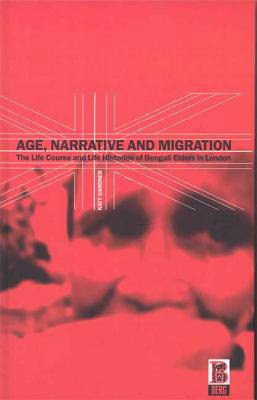
- Retrait gratuit dans votre magasin Club
- 7.000.000 titres dans notre catalogue
- Payer en toute sécurité
- Toujours un magasin près de chez vous
- Retrait gratuit dans votre magasin Club
- 7.000.0000 titres dans notre catalogue
- Payer en toute sécurité
- Toujours un magasin près de chez vous
Age, Narrative and Migration
The Life Course and Life Histories of Bengali Elders in London
Katy Gardner
Livre relié | Anglais
155,45 €
+ 310 points
Format
Description
Whilst the vast majority of recent research on identity and ethnicity amongst South Asians in Britain has focused upon younger people, this book deals with Bengali elders, the first generation of migrants from Sylhet, in Bangladesh. The book describes how many of these elders face the processes of ageing, sickness and finally death, in a country where they did not expect to stay and where they do not necessarily feel they belong. The ways in which they talk about and deal with this, and in particular, their ambivalence towards Britain and Bangladesh lies at the heart of the book. Centrally, the book is based around the men and womens life stories. In her analysis of these, Gardner shows how narratives play an important role in the formation of both collective and individual identity and are key domains for the articulation of gender and age. Underlying the stories that people tell, and sometimes hidden within their gaps and silences, are often other issues and concerns. Using particular idioms and narrative devices, the elders talk about the contradictions and disjunctions of transmigration, their relationship with and sometimes resistance to, the British State, and what they often present as the breakdown of traditional ways. In addition to this, the book shows that histories, stories and identity are not just narrated through words, but also through the body - an area rarely theorized in studies of migration.
Spécifications
Parties prenantes
- Auteur(s) :
- Editeur:
Contenu
- Nombre de pages :
- 264
- Langue:
- Anglais
Caractéristiques
- EAN:
- 9781859733134
- Date de parution :
- 01-06-02
- Format:
- Livre relié
- Format numérique:
- Genaaid
- Dimensions :
- 143 mm x 225 mm
- Poids :
- 449 g

Les avis
Nous publions uniquement les avis qui respectent les conditions requises. Consultez nos conditions pour les avis.






